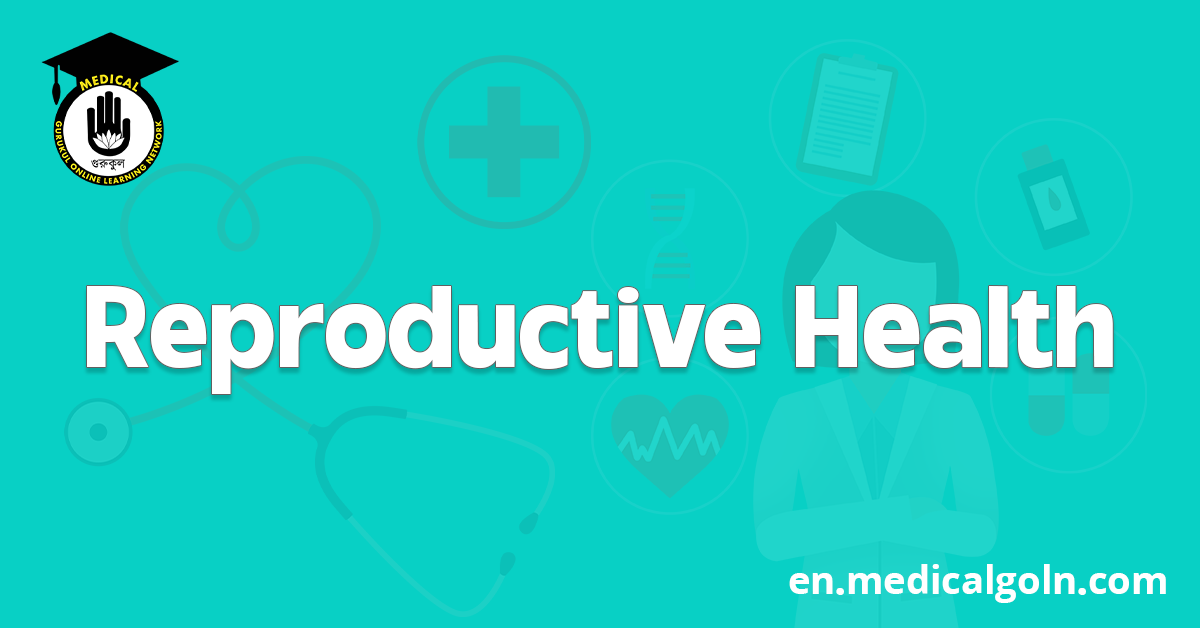Today is our topic of discussion Reproductive Health
Reproductive Health

Reproductive health is part of ‘health’. Reproductive-health implies that people are able to have a responsible, satisfying and safe sex and that the people, including the youth should have the capability to reproduce and freedom to decide if, when and how often to do so.
Definition:
Reproductive-health is a state of complete physical, mental and social well-being, and not merely the absence of reproductive disease or infirmity in all matters relating to the reproductive system and to its processes, functions and system at all stages of life (ICPD, 1994).
Reproductive health services:
According to ICPD (Cairo, 1994) reproductive-health services include-
1. Prevention of unintended pregnancy through family planning services.
2. Prevention and management of STDS/RTIS and AIDS.
3. Provision of safe pregnancy services to improve maternal morbidity and mortality, including services to improve perinatal and neonatal mortality.
4. Provision of postabortion care services.
5. Provision of reproductive services to adolescents.

6. Improvement of maternal and infant nutrition, including promotion of breastfeeding programs.
7. Screening and management of specific gynecological problems such as reproductive tract cancers, including breast cancer and infertility.
8. Addressing social problems: Prevention & management of harmful practices (e.g. female genital mutilation) and gender-based violence.
Sexual health:
Sexual health is a state of physical, mental and social well-being in relation to sexuality (WHO). It requires a positive and respectful approach to sexuality and sexual relationships, as well as the possibility of having pleasurable and safe sexual experiences, free of coercion, discrimination and violence’.

See also :
